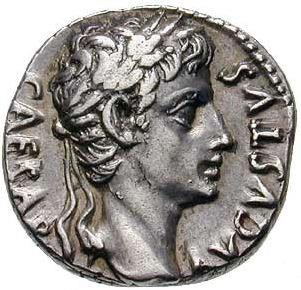Luke 20‒21
The widow’s mites; the destruction of the temple
Luke 21
1 And as He looked up, He saw the rich casting their gifts
into the treasury.
2 And He saw also a certain poor widow casting in there two
mites9.
3 And He said, Truly I say to you that this poor widow has
cast in more than they all.
4 For all these from their excess have cast offerings into the
gifts of God; but she from what she lacks has cast in all the
living that she had.
5 And as some spoke of the temple, that it was adorned with
goodly stones and consecrated gifts, He said,
6 As for these things which you behold, the days will come in
which there shall not be left a stone upon a stone which shall
not be undone.
TCR 459:9. [An opinion expressed at a conference in the spiritual world on what charity is:] “Let not the rich exalt the munificence and excellence of their charity over the pittance that one poor man gives to another; for we know that everyone in what he does acts according to what is suitable to his person, whether he is a king or a magistrate, a commander or an attendant. For charity, viewed in itself, is not estimated by the excellence of the person, and consequently of the gift, but by the amplitude of the affection that prompts it; so that a menial giving one penny may do so from a larger charity than the great man who gives or bequeaths an immense sum. This is in accordance with these words.... (Luke 21:1-3).
TCR 459:13. [Swedenborg said:] “It is my opinion that charity is to act with judgment from a love of justice in every employment and office, but from a love derived from no other source than the Lord God the Savior. All that I have heard from those sitting upon the benches, both on the right and on the left, are eminent examples of charity; but, as the president of this assembly stated at first, charity in its origin is spiritual, but in its flowing forth is natural; and natural charity, if it is inwardly spiritual, appears to the angels transparent like a diamond; but if not inwardly spiritual, and therefore purely natural, it appears to the angels like a pearl that resembles the eye of a cooked fish.
TCR 459:14. “It is not for me to say, whether the eminent examples of charity which you have presented in order, are inspired by spiritual charity or not; but I can say what the spiritual must be that ought to be in them, so that they may be natural forms of spiritual charity. The spiritual itself of these is this, that they be done with judgment from a love of justice; that is, that in the exercise of charity man should see clearly whether he is acting from justice, and he sees this from judgment. For a man may do evil by deeds of beneficence; and by what appear to be evil deeds he may do good....”
AR 191:3. ...By “the temple” here is signified the church at this day; and by its dissolution so that “there is not one stone upon another,” is signified the end of this church, in that no truth whatever would then be left. For when the disciples spoke to the Lord concerning the temple, the Lord foretold the successive states of this church even to its end, or “the consummation of the age,” and by “the consummation of the age” is meant its last time, which is at this day. This was represented by that temple being destroyed to its foundation.
9 Greek lepta, small copper coins
Questions and Comments
- Does the story of the widow casting her two mites into the treasury give you encouragement in making your modest contributions to the church, even though evil spirits may tell you they are too small to make a real difference? What are the most important values of our contributions of money, time and talent?
- In what sense should each of us contribute “all the living we have”?
- What might be an example of acting with judgment from a love of justice, in a marriage of truth and good that produces a spiritual diamond? What might be an example of acting without judgment or without the love of justice, that is like the eye of a cooked fish?
- What are some of the implications of the teaching that the church at this day is consummated? How should this teaching affect how we think of the church with ourselves, as people living in the post-Christian world and sharing its heredity? In what ways should we take care not to be a part of the consummation of the age, but instead be part of the New Church?
| previous |  |
next |
|---|


